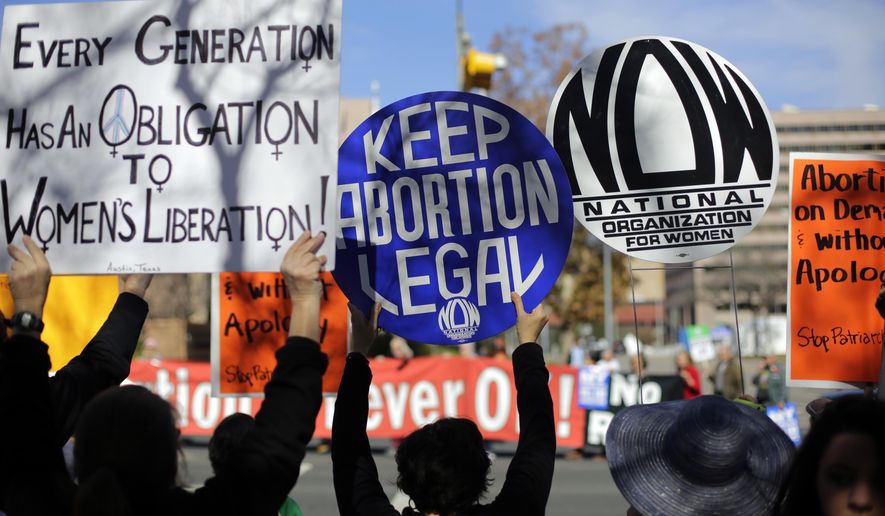Texas abortion clinics are continuing to wait to hear if the Supreme Court will step in and block an abortion law set to take place July 1.
The high court was in session Monday morning but didn’t respond to the emergency appeal, which was filed Friday with Justice Antonin Scalia, who handles such requests about 5th U.S. Circuit Court of Appeals.
Its order could come at any time, however.
Whole Woman’s Health and other abortion providers have lost at the appellate level but hope they can still prevail at the Supreme Court.
They are fighting a 2013 Texas law that requires abortion clinics to meet certain physical standards of ambulatory surgical centers, and also requires abortion doctors to have local hospital-admitting privileges.
The abortion providers say several clinics cannot meet those standards and will be forced to close when the law goes into effect July 1. This will leave as few as nine abortion clinics operating in the state.
Texas lawmakers and pro-life advocates say these regulations will protect women seeking abortions from inferior facilities: In other states, abortion clinic hallways have been too small for emergency responders to get their equipment in to move patients, and the infamous Kermit Gosnell abortion clinic in Philadelphia was filthy and in deplorable condition.
The doctors’ admitting privilege was enacted to ensure continuity of care in cases where women seek emergency care at a hospital after an abortion.
Pro-choice groups — and their allies in public health — say these two regulations are unneeded and serve only to restrict women’s access to legal abortion.
The law is “underhanded, unjustified and extremely harmful,” said Nancy Northup, president and chief executive of the Center for Reproductive Rights, whose lawyers are representing the clinics and abortion doctors in the case.
The pro-choice lawyers filed their emergency request with the Supreme Court after the 5th Circuit on Friday denied their request to suspend its June 9 decision, which upheld the Texas law.
If the Supreme Court chooses to step into the Texas abortion case, its hearing and ruling would come amid the 2016 presidential campaign.
An analysis from the Associated Press said the Texas case could be attractive to the justices because it would permit them to give more definition to the key phrase from their last big abortion ruling, Planned Parenthood v. Casey, in 1992.
The Casey ruling said states may regulate abortion unless doing so places “an undue burden” on a woman’s right to get an abortion.
“Courts have been fumbling for years about what does it mean to be undue under Casey,” Priscilla Smith, a Yale Law School professor and defender of abortion rights, told AP.
“The likelihood of this case getting to the Supreme Court is very high and I think that’s a good thing,” Mike Norton, senior counsel for Alliance Defending Freedom, a pro-life law firm, told AP.
• Cheryl Wetzstein can be reached at cwetzstein@washingtontimes.com.




Please read our comment policy before commenting.